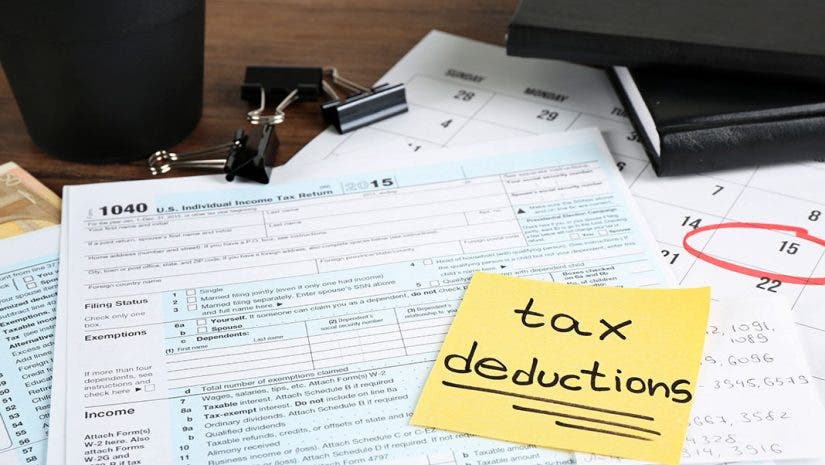“Who loves paying taxes?”
We like to ask that during Terms & Conditions workshops. Unsurprisingly, no one raises their hands. Unfortunately, the follow-up question generates the same result.
“Who knows how to avoid paying extra taxes?”
Again, no hands go up.
In our last blog, we talked about being in control of money through budgeting. Having a budget in place is an excellent way to save money. Now, we want to help you get the most out of your hard-earned cash. As creatives and freelancers, we can do this through claiming certain deductions on our annual tax returns.
You can get the most out of tax deductions by capitalizing on each category to the fullest extent. But for deductions to work in your favor, you must substantiate them. Simply put: be sure to keep good records of business expenses. We can’t stress how important it is to keep records on the deductions you claim. If you do it right, you will save thousands of dollars. And who doesn’t like saving money?
Business deductions
Deductions fall into two categories: itemized and business. (For this blog, we’ll be focusing on business deductions. Itemized deductions are deductible expenses that an individual can claim on his or her federal income tax returns. Business deductions are exactly as they sound: they’re deductible expenses related to your business.)
In Publication 529, the IRS classifies business deductions into two categories: ordinary and necessary:
-
- “An ordinary expense is one that is common and accepted in your trade or business.”
- “A necessary expense is one that is helpful and appropriate for your trade or business. An expense does not have to be indispensable to be considered necessary.”
Let’s say, if your primary vocation as a freelancer is filmmaking, then an ordinary expense might look like:
-
- Backdrop
- Light stands
- Travel to shoot location
- Parking pass
Some necessary expenses may come up like this:
-
- Camera
- Lens
- SD card
- Tripod
- Shotgun Mic
Finally, business deductions must be separated from the following:
-
- Expenses used to figure the cost of goods sold,
- Capital expenses, and
- Personal expenses.
These expenses are to give you an idea of what you generally can deduct in this particular scenario. We won’t go into a detail about these expenses — just know these are deducted differently. In many cases, you can’t immediately write off the entire cost of such expenses.
Just as making a budget takes time, so does claiming and tracking deductions. We recommend making it easier on yourself by keeping track of business-related expenses now so claiming deductions later is easy.
You can claim a lot between itemized and business deductions, but there are still more savings to come! Are there other less common deductible expenses you’ve overlooked?
Overlooked business deductions
A home based office is available for those who meet two requirements:
-
- The home-office is used exclusively and regularly for administrative or management activities of your trade or business.
- You have no other fixed location to conduct substantial administrative or management activities of your trade or business.
The easiest way to calculate this deduction is to use the IRS’s simplified option. The simplified option is taking a standard deduction of $5 per square foot of home used for business (maximum 300 square feet).
We recommend taking a look at how you use your office to see if it meets the guidelines specified above. If it does, go ahead and calculate the square footage of your office.
When tax time rolls around, be sure to ask your tax preparer about deducting your home office. He or she will most likely ask you a few questions about it, along with the total square footage. If you need a new certified tax preparer, we can help!
Automobile deductions
Do you use your car for business use? In order to claim a deduction for business use of a car, you must have ordinary and necessary costs related to one or more of the following:
-
- Traveling from one work location to another within the taxpayer’s tax home area
- Visiting customers or potential customers
- Attending a business meeting away from your regular workplace
- Getting from home to a temporary workplace when the taxpayer has one or more regular places of work (i.e. creative workspace)
The IRS provides a standard deduction for people looking to write of the use of a car. It’s currently 54.5 cents per mile for 2018. For the tax year of 2017, it was 53.5 cents.
Be sure to keep a good milage log. You can use a spreadsheet or find an app online. In general, we tell people the log should contain basic info about your trip, such as: date traveled, milage, purpose for traveling and location traveled to. Your milage log might look something like this when you’re done:
Date: 03/10/18
Milage: 5.8
Purpose: “Meeting w/ John Legend – potential client”
Place: “Town square coffee shop”
Travel expenses are also deductible. They include, but aren’t limited to, the costs of:
-
- Travel by airplane, train, bus or car between your office and your business destination.
- Fares for taxis or other transportation between the airport or train station and hotel, the hotel and the work location, and from one customer to another, or from one place of business to another.
- Shipping baggage, and/or sample or display material between regular and temporary work locations.
- Using your car while at your business destination. (You can deduct actual expenses at the standard mileage rate, as well as business-related tolls and parking fees. If you rent a car, you can deduct only the business-use portion for the expenses.)
- Meals and lodging.
- Dry cleaning and laundry.
- Business calls while on your business trip.
- Tips you pay for services related to any of these expenses.
- Other similar ordinary and necessary expenses related to your business travel.
Other miscellaneous deductions:
Employees/contractor pay you can generally deduct what you pay your employees, or contractors for their services for your business.
Some retirement plans offer the ability to put away money tax-free for your future. These types of funds allow you to contribute up to $18,500 annually.
Rent expenses are any amount paid for the use of property you don’t own. Generally, you can deduct rent as an expense only if the rent is for property used in your trade or business. If you have the title to the property, or will receive equity, the rent is generally not deductible.
Business interest charged for the use of money borrowed for your business is deductible.
The ordinary and necessary cost of insurance can also be deducted as a business expense, if used for your trade, business, or profession (i.e. equipment insurance, or liability insurance).
Like previously mentioned, make sure to keep all your receipts, invoices, logs, etc. Keeping good records will not only make your life easier, but it is generally always required if you want to claim the deduction(s) on your tax return.
Deductions are your friend
By properly claiming tax deductions, you’ll save more money for your business. In doing so, you’ll save time and have less to worry about, so you can get back to doing what you love. And at Terms & Conditions, we’re all about supporting people who want to make money doing what they love.
Want to know more about tax deductions? Visit the Terms & Conditions website and send us a text. Or if you need a certified tax preparer this year, we specialize in personal and small business taxes. Check out our Tax Service today!






